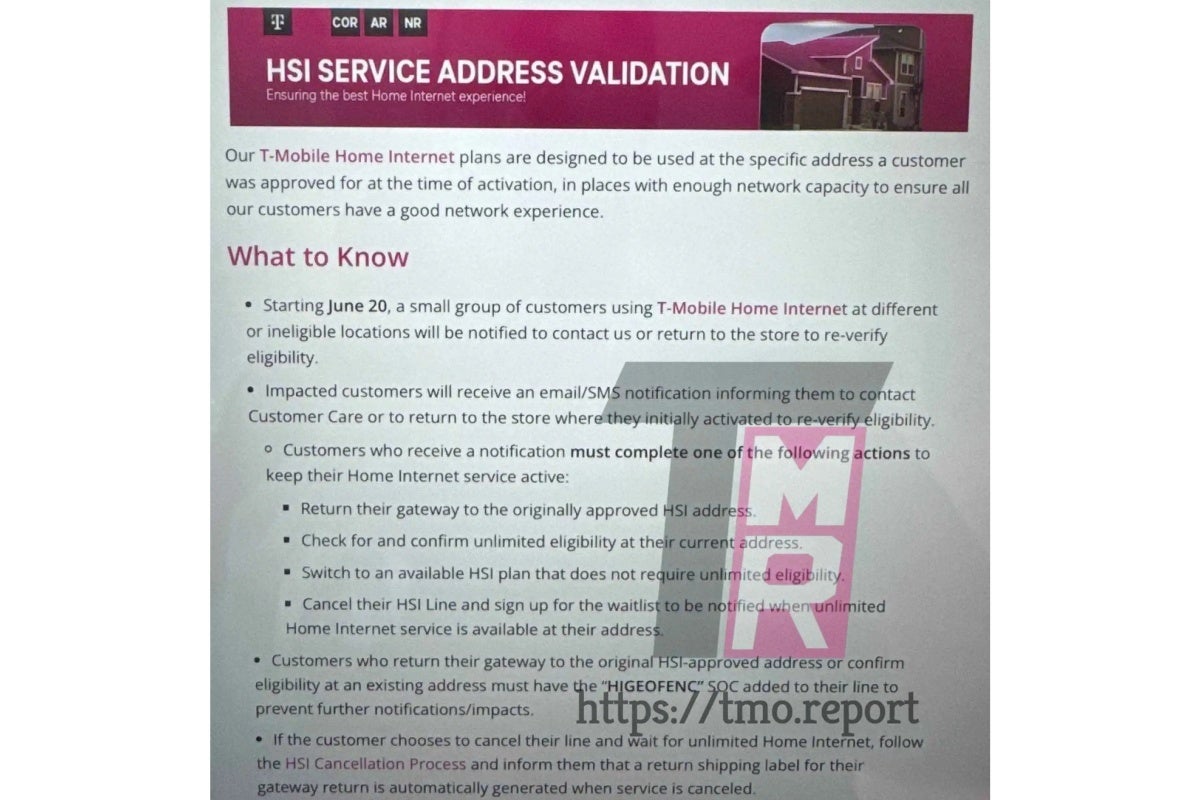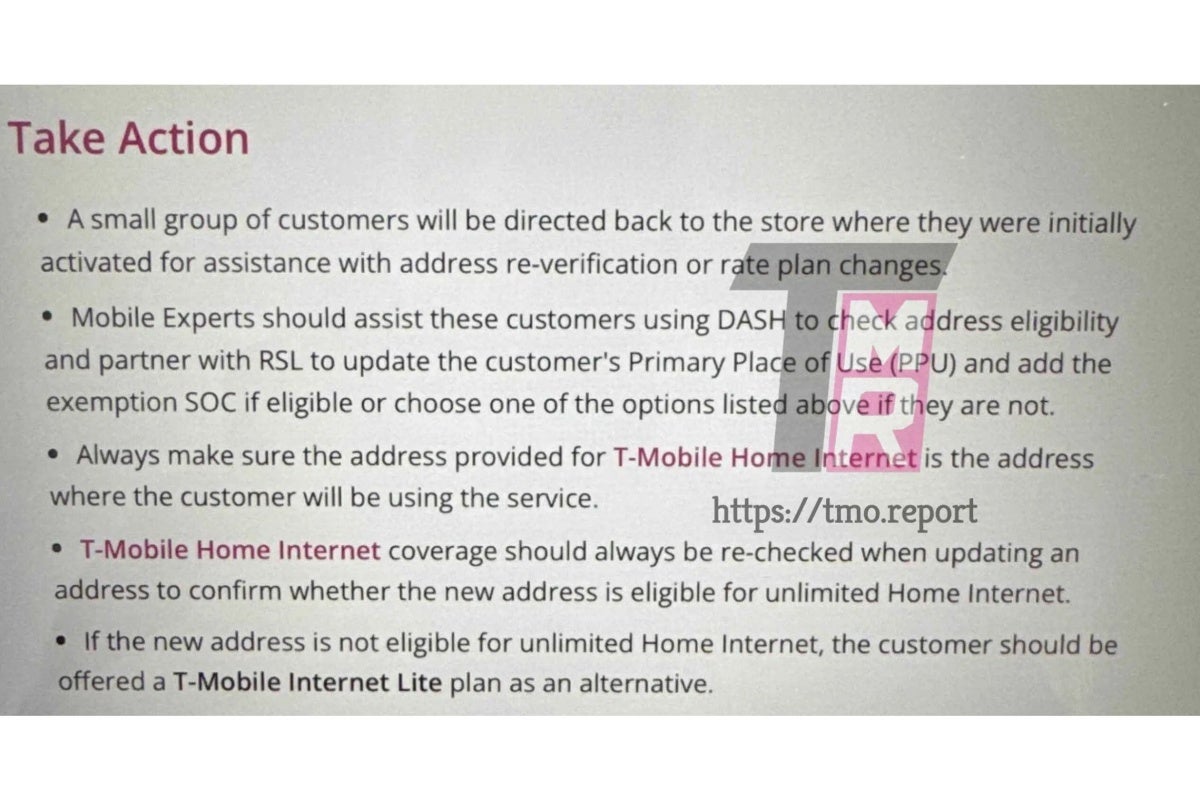What’s happening and when?

T-Mobile seems intent to start alerting customers of its policy change this week.
Once you get that dreaded notification, you have a few courses of action to choose from, but we’re afraid that ignoring your operator in the hopes that the problem will go away without you lifting a finger is not really an option.
The best option is clearly to go back to the address where you registered your 5G gateway in the first place, although that may not always be possible for fairly obvious reasons like relocation. If you find yourself in such a sticky situation, you’ll have to “confirm unlimited eligibility” at your current address.
Problem solved?
Unfortunately, not necessarily. That’s because T-Mobile‘s unlimited Home Internet service is (technically) not available across the nation… yet, which might be precisely the reason why you registered your account in one place and ended up accessing the network at another address.
If that different address is not officially supported, you’re officially out of luck, and you’ll either need to leave the network or switch to a much costlier Away plan. That will set you back $110 a month with a data cap of 200GB or $160 a month with no such limits instead of the 40 bucks you’re probably paying right now.


These are some of the internal instructions given to employees expected to handle home address verifications.
Making that move is clearly not a viable option for many people, which will likely force most customers directly impacted by T-Mobile‘s new home address verification policy to cancel their existing HSI lines and either never look back or sign up for a waitlist to receive a notification when the “Un-carrier’s” unlimited Home Internet service finally reaches their area.
Even though it’s undeniably hard not to view this imminent change as yet another move aimed squarely at squeezing more money out of Magenta’s loyal customer base, the wireless service provider seems to suggest its intention is actually to “ensure” all users have a “good network experience.” That would definitely be a noble goal… if it were true, which we highly doubt is the case in reality.
